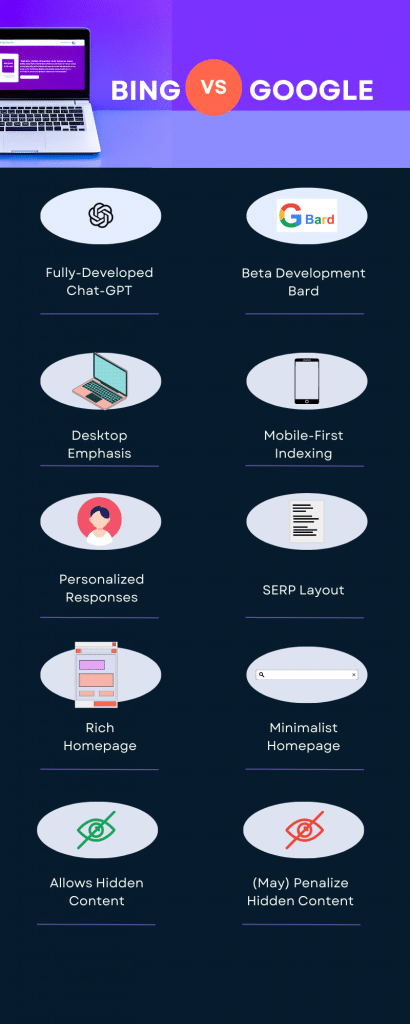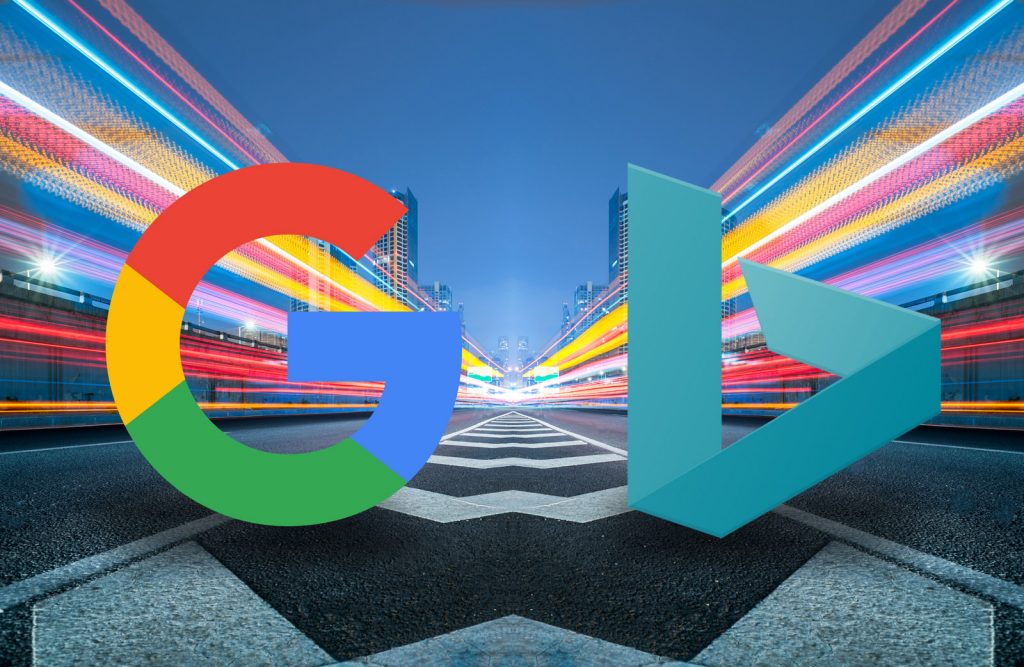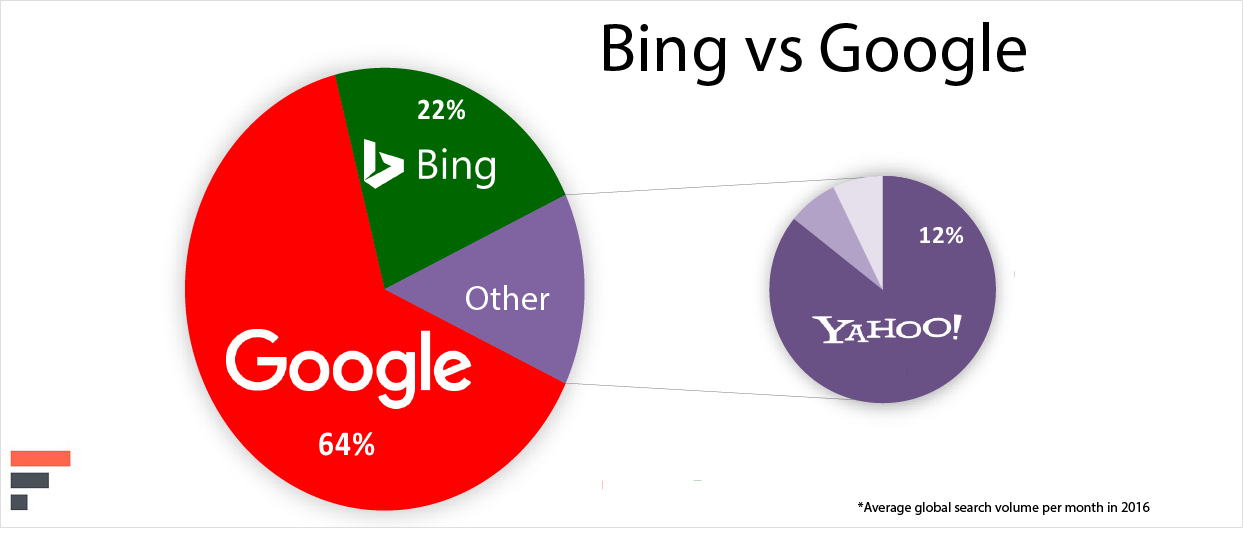Updated: Apr 26, 2019
When designing an SEO strategy, it is common to either consider all search engines the same or only focus on one. It is easy to disregard Bing and other Google competitors since Google is the most-used search engine in the US with 64.0% market share, but Bing and Yahoo still compose 28% of the search market. At the same time, you can’t treat all search engines the same because there are significant differences between Google and Bing. By comparing Bing vs Google, you can build a developed SEO strategy that will optimize for both.
It should be noted that Bing and Yahoo have an alliance in which Bing powers the majority of Yahoo Search. In July 2009, Microsoft and Yahoo announced that Bing would power Yahoo Search. This means that their search engines behave the same way and all of the guidelines for one apply to the other. Google, Bing and Yahoo comprise 97.6% of the search market based on average monthly searches.
By learning the differences between Bing vs Google, you can create a fully optimized SEO strategy.

Differences Between Search Engines
Unique to Google
Mobile Emphasis
Google has recently announced that they are beginning to rank mobile websites before the desktop version. This is a unique stance ahead of other search engines where mobile use is becoming the priority.
Older Pages vs. Fresh Content
Bing tends to favor old, reputable pages whereas Google prefers fresh, regularly engaged content.
Internal Page Ranking
Google is more prone to ranking an internal page such as blogs and services, whereas Bing is more likely to rank the home page.
Automatic Campaign Tagging in Google Analytics
Since Google Analytics and Google Search are two elements of the same company, many actions are automated. One clear example is campaign tagging. The ‘term’ section of a campaign URL is automatically tracked on Google paid search campaigns, but the section is left empty unless manually entered when tracking Bing and Yahoo! campaigns.
Unique to Bing
Hidden Content is Crawled Equally
Bing and Yahoo do not discern between hidden and non-hidden text. Google may devalue this, and using hidden content could damage rankings and visiblity.
Exact-match Keywords
Bing will pay more attention to exact-match keywords, where the specific words are showing up in the meta data and the text on the page. Google, on the other hand, pays attention to concepts and focal points over specific phrasing.
Social Signals
Social signals for a brand are valuable for all search engines, but Bing has publicly stated that social signals are a strong ranking factor whereas Google claims to value them less.
Flash Content
Bing can read flash websites well, and could potentially favor a site that has very engaging flash content.
Similarities Between Search Engines
Big Brands Rank Higher
Across all search engines, bigger brands will rank higher automatically. This is a combination of domain authority, high-quality backlinks and the daily visitors to a site. The general assumption is that the more popular site will be the more attractive option for users.
High-Quality Backlinks
All search engines value backlinks. If trusted sites are linking to your site, then your credibility is raised. The emphasis on this point is high-quality. Search engines value the backlink directly based on the value of the site that is backlinking.
Local Search
Local results are highly valued on Google and Bing, so a targeted local SEO strategy will be valuable on all search engines.
SEO Tools
Bing and Google both have a form of webmaster tools, where important search information can be accessed. The debate between tools is just as large as this debate, luckily we have a blog on Bing Webmaster Tools vs. Google Search Console.
How to Optimize for Search on Google and Bing
With the similarities and differences in mind for Bing vs Google, there are some optimization techniques that will yield the highest benefit and minimal deduction across all search engines.
Title Tags
Title tags that feature keywords will rank very well on Bing, but make sure to use keywords wisely so Google does not suspect keyword stuffing.
Optimize home page and top internal pages
Bing will most likely rank the home page, so there should be optimized content valuable to the user opposed to a simple hub. Internal pages such as services should be optimized as well because Google is most likely to rank those.
Social Media
Bing may claim to prefer social media more than Google claims to, but all search engines consider social signals when ranking pages.
Local SEO
All search engines value local services in search, so a strong local SEO strategy should be implemented.
Mobile Optimization
Google and Bing both value mobile sites highly, so a site optimized for mobile use is very important to an SEO strategy.
Get rid of Flash
Google does not read Flash websites well, so you should convert from Flash to HTML as soon as possible. Though Bing may still be able to read it, losing ranking on Google is not worth small growth on Bing.
With a better understanding of Bing vs Google, you can optimize your website so it performs better on every search engine. How do you think Bing and Google compare? Let me know if there is anything I missed below.











One Comment
It’s a fascinating exploration for anyone interested in understanding the nuances of online search and the differences between these leading search engines.